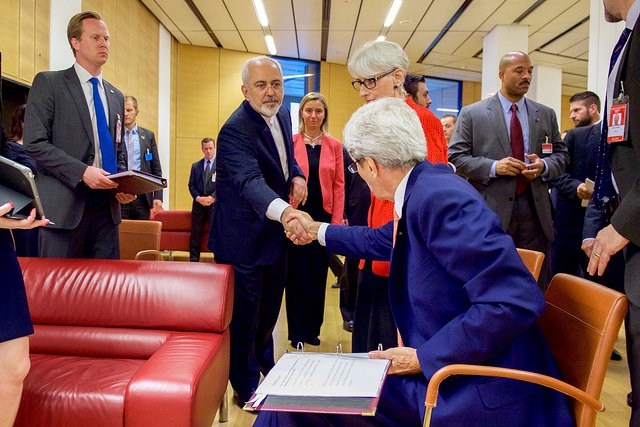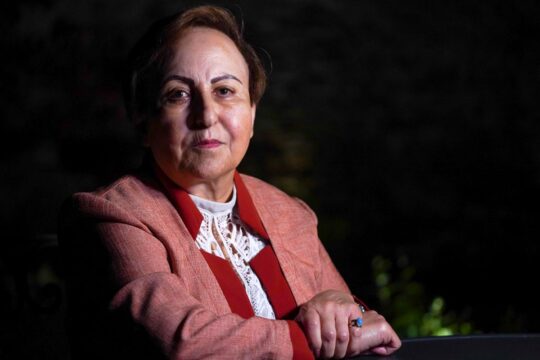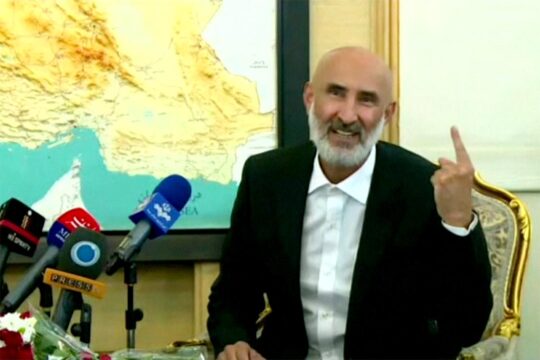Diplomacy has resumed its role, trumping ’go it alone’ military interventions. Time-wise, we’re in for the long haul- but that could spell some good news.
The fruitful culmination of negotiations between world powers and Iran over its nuclear program, are yet another indication to the global shift in International Relations, away from unilateral military solutions, and back towards multilateral diplomacy. Iran’s nuclear agreement, Syria’s negotiated chemical weapons removal, the re-opening of a US embassy in Havana, and the Palestinian authority’s choice for diplomatic pressure over military means against Israel, all attest to the fact that ‘Diplomacy is Back’. The failures of the military interventions in Afghanistan, Iraq, and Libya, and their colossal corollaries of ISIS in Mesopotamia and the resurgent Taliban, provide for a staunch remainder to the limits of military power. The problem with Kosovo’s interventionist success was that it triggered a decade of ‘go it alone’ militarism. It has taken over one million deaths (cumulatively in Afghanistan, Iraq, Syria and Libya) and the destabilization of entire regions, for the US and the UK to recall the merits of diplomacy. For all their military might, it was the crippling pain of economic sanctions that coerced Iran to compromise, much more than any prospective pounding of its nuclear facilities. Many strategists the world over would in hindsight opt for the imperfectabilities of Gaddafi, Bashar al Assad, and Saddam Hussein over ISIS’ beheadings and endless refugees.
For all its merits, one alarming consequence of the ‘return to diplomacy’ could be a rise in the justification of impunity in conflicts where the Peace-Justice nexus is exceptionally strong. Diplomatic negotiators, so goes the theory, would always prefer a cessation of violence coupled with guarantees for non repetition – in exchange for a granted amnesty to the perpetrators of atrocities. The meta-logical assumption underpinning this world view pits diplomatic ‘realism’ against the ‘moralist’ tenets intrinsic to international criminal justice.
As with all good theories, the intellectual strength of the Peace-Justice nexus lies in its reductionist Gnostic simplicity. Reality, however, is infinitely more complex. For one, diplomacy does not entail impunity inter alia. In the Dayton accords, Holbrooke and most of the international community refused to grant unconditional amnesty, notwithstanding many ‘realist’ considerations all along Dayton’s ‘tightrope act’ of intense international diplomacy. From the other side, Fatou Bensouda’s courageous decision to drop the charges against Uhuru Kenyatta included ample dosages of ‘realism’, granted the ‘legalist’ cloak of a lack of sufficient evidence she argued for. Rather than losing the support of all African States, Bensouda skillfully injected a sense of ‘realism’ back into the ICC, after Ocampo’s ‘go it alone’ strategy on Kenyatta almost brought down the entire institution. At the end of the day, not all diplomats are ‘naked realists’ while International criminal jurists are not all stringent ‘moral purists’.
On both sides of the dividing line, between advocates for the newly-revived diplomacy, and the so called ‘go it alone’ interventionists, stand people who are genuinely empathetic to human pain and suffering.
The fundamental difference between ‘go it alone’ interventionists and ‘revived diplomats’ lies in their very different perceptions of our current global condition, and their opposing notions concerning time and patience in International Relations. The ‘go it alone’ interventionists adhere to the digital speed of our electronic age, demanding instant and immediate remedies to painfully burning problems which rightfully perturb them. The ‘revived diplomats’ are viscerally suspicious of any solution which purports to be immediate or all-encompassing. When applied to the personalities in International criminal justice, Ocampo emphatically belongs to the ‘go it alone’ interventionists, while Bensouda seems to be veering more towards the ‘revived diplomats’. Her handling thus far of the Palestinian-Israeli file, which landed on her desk last April, has been flawless. Israel’s unprecedented decision to commence discussions with the ICC, even if only over procedural-jurisdictional matters, says loads about how Bensouda is perceived in Jerusalem, especially when one considers Israel’s recent reactions to the UNHRC report by Mary McGowan Davis.
Therein lies a pertinent lesson for Transitional Justice advocates who believe in the fight against impunity. Diplomatic and political processes, if they are to achieve any sustainable result - take time. People do not digest nor absorb political changes at the lightning speed in which news travels. In Chad, it has taken almost a quarter of a century for Hissène Habré to be brought to trial. In the former Yugoslavia, the ICTY is winding down after almost two decades. In Tunisia, twenty two years of dictatorial rule are unfolding as testimonies of victimized women are surfacing in the Truth Commission there.
Transitional justice, and especially international criminal instruments exist somewhere in the middle of the spectrum between the political and the juridical. As the political sphere drifts away from ‘go it alone’ intervention, towards revived diplomacy, so will the time spans of these processes extend. They do not extend because of what Holbrooke termed as ‘futile diplomacy’. They extend because governments, leaderships, and indeed entire societies simply do not react with the same digital speed as we are being accustomed to by the ‘global condition’. There can be no ‘instant gratification’ in Transitional Justice, since nothing is instant in societal processes. Once we have conceded that politics and diplomacy are intrinsic parts of Transitional Justice, and with ‘revived diplomacy’ taking longer than ‘go it alone’ interventionism, we must come to terms with the fact that we are in for the long haul. Our chances for success, however, are somewhat higher, due to the compatibility between our human time characteristics and the patient Longue durée nature of diplomacy- which has always been an integral part of Transitional Justice.





